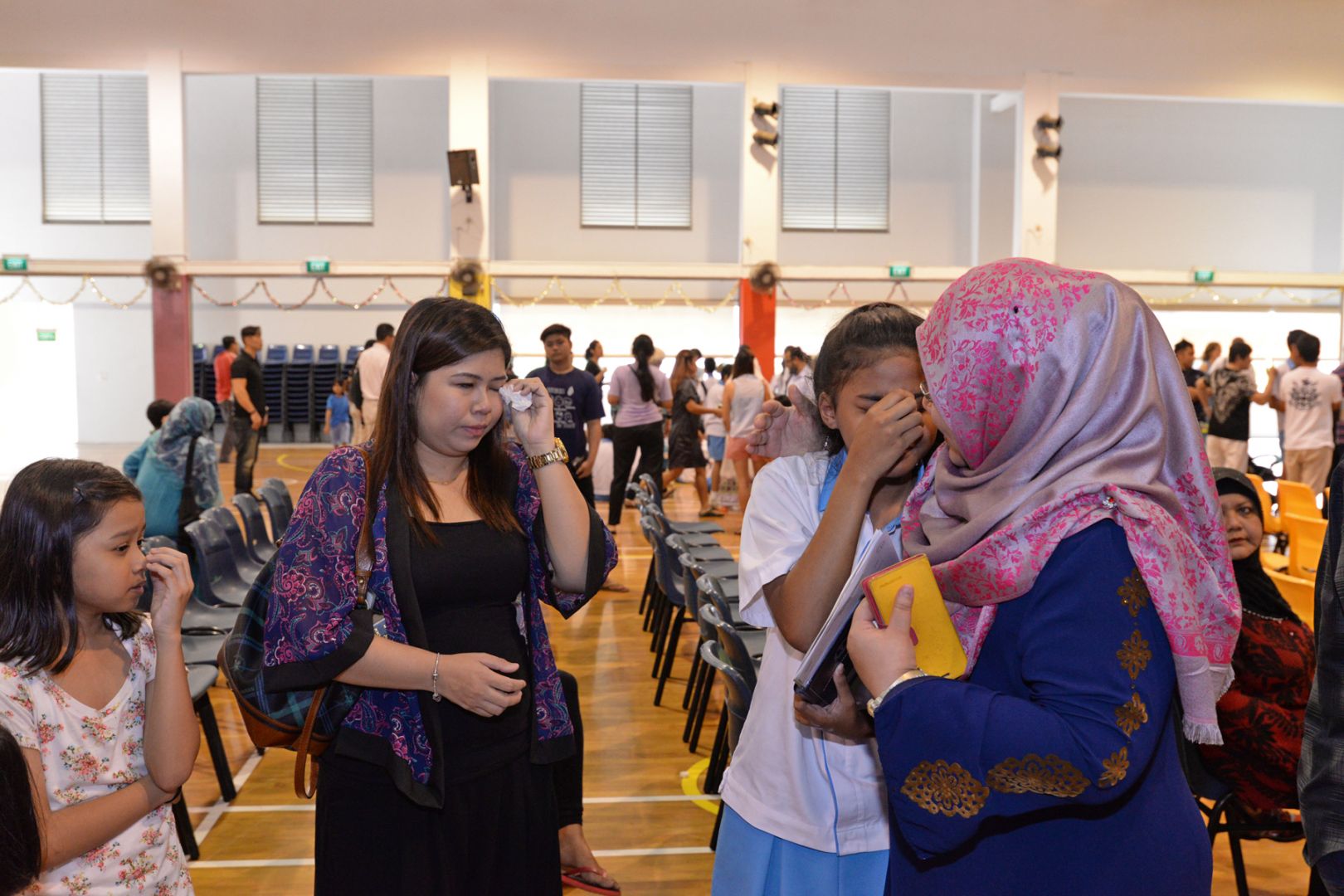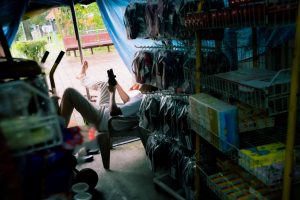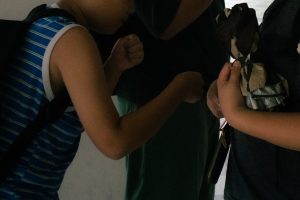PSLE results day is usually a time of supercharged emotions. While there are cheers of jubilation for students who have done well, tears of despair often await those confronted with disappointing results.
In such circumstances, a single well-worn phrase is frequently proffered as a salve for wounded hearts: “Don’t worry, your grades don’t define you.”
This consolation has become increasingly common as Singaporeans have begun questioning the elitism and stress plaguing our education system. Yet as the differing experiences of students from different academic streams in the recent CNA documentary Regardless of Class suggest, academic performance shapes our identity more than we like to think.
If grades do not define us, why do students from different streams display such widely differing attitudes and world views?
The reality is that while societal attitudes are changing, institutions have not. While it is no longer acceptable to publicly proclaim that grades define an individual’s worth, our education system is still underpinned by academically elitist assumptions. No surprise then that parents still subject their young children to relentless tuition and Ten Years Series’; they are merely responding to an education system that still disproportionately rewards academic performance.
Our late former Prime Minister Lee Kuan Yew once argued that society should be organised in a hierarchical fashion akin to an army, where a battalion has “60–70 officers, 100–200 sergeants and corporals, and the others, about 500, are privates.”
Singapore’s stratified education system reflects this style of thinking. It is a complex system of social engineering designed to sort Singaporeans into these roles based on academic performance.
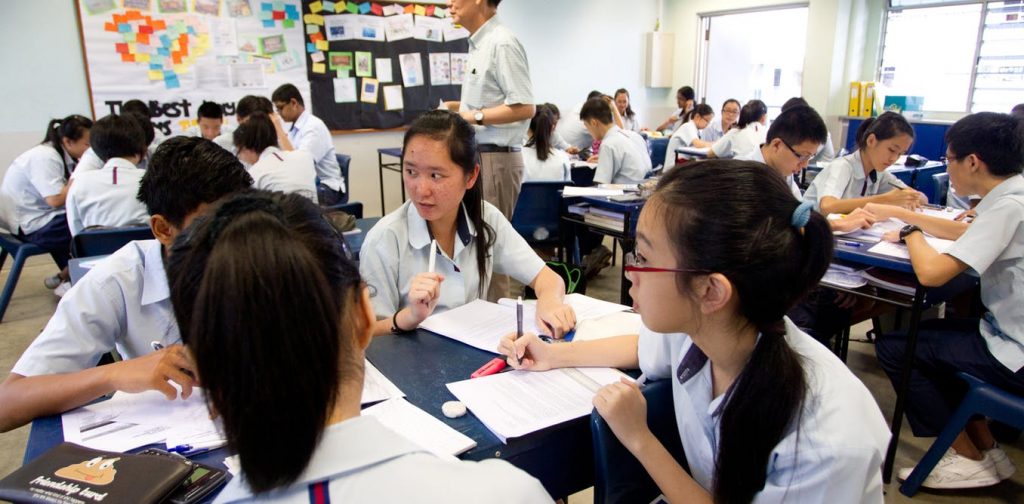
Express and Normal (Academic) students, however, are prepared to be “globally-oriented but locally-rooted middle managers”. While exposed to key issues such as globalisation and governance, they are taught in a rote-based manner that allows them to understand higher-level directives without asking too many questions. Though the syllabus does make students aware about avenues for social participation and active citizenship, they lack both the curricular time and opportunity their IP peers enjoy to engage in civic action.
Normal (Technical) students are imparted with “a predetermined body of knowledge and set of values” to build a corps of compliant workers. Admittedly, significant curricular reforms have been made since Ho’s study to introduce more critical thinking elements into the Normal (Technical) curriculum. Nevertheless the current curriculum still places greater emphasis on description and explication of issues as compared to Express and Normal (Academic) students, who have more room to develop critical and reflective thinking skills.
Ho’s troubling findings are reflected in other studies. Leonel Lim from the National Institute of Education (NIE) and Michael Apple from UWM found that IP students are often given more space to cultivate critical thinking skills within a more open classroom environment, encouraging them to develop critical thinking as a life habit.
In contrast, teachers in non-IP schools are often pressured to teach by rote, owing to the need to prepare students for additional national examinations. These methods encourage students to only exercise critical thinking within a classroom or examination setting. Non-IP students are thus at a disadvantage relative to their IP-educated peers in a knowledge-based economy that prioritises critical thinking—a key competency that MOE wishes to cultivate in all students.
Mary Anne Heng (NIE) and Matthew Atencio from California State University, East Bay, further highlight how low expectations of Normal (Technical) students often lead to less than ideal teaching outcomes. Many teachers may lack confidence in their students’ attitudes and abilities, and thus transmit knowledge to them with little room for questioning and student participation. Such attitudes exacerbate the systemic stigma faced by Normal (Technical) students, while introducing a combative classroom dynamic that is not conducive for learning.
The inconvenient truth is that academic streaming strongly influences a student’s individual identity. In the face of a pervasive and entrenched system of social engineering, it is difficult for students to resist the institutional identity that the education system imposes upon them. These assumptions perpetuate stark differences in the attitudes, experiences, and worldviews held by students of different streams, rendering them unable to relate or interact with one another.
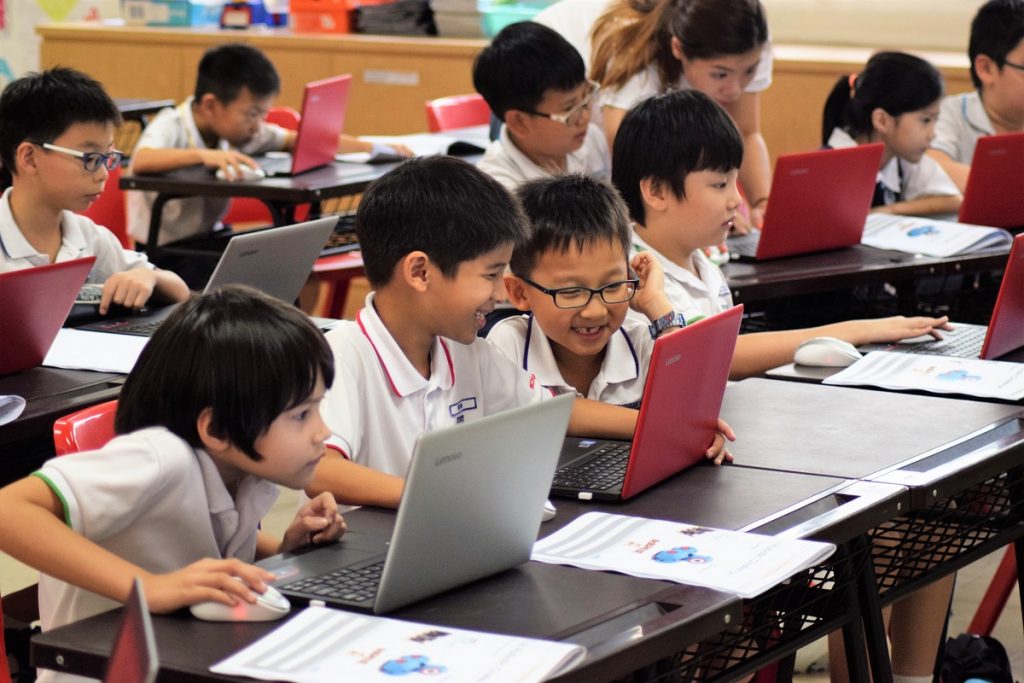
Great leaders are, in fact, often found in the unlikeliest of places: British Prime Minister Winston Churchill was a political outsider struggling with depression before leading Britain to victory in World War II. We should not, therefore, assume that we can filter out potential national leaders at a tender age without being tested in the real world. If so, we risk selecting brilliant students who don’t fit well with actual policymaking while foregoing more suitable candidates with less stellar grades.
While the Ministry of Education (MOE) and civil society groups like Life Beyond Grades are trying to change the belief that grades define a student’s worth, these initiatives do not deal with the root of the problem.
Yes, parents and teachers want to de-emphasise grades, but the rigour of an education system designed to sort “winners” from “losers” compels them to harp on exam results to prevent children from falling behind. So long as the present system continues to reward academic achievement disproportionately, pragmatic parents will persist in preparing their children to succeed within the present system rather than speculate on a hypothetical future where grades don’t matter.
As such, streaming should be abolished in secondary schools. While the introduction of subject-based banding in secondary schools now allows Normal (Academic) and Normal (Technical) stream students to take some subjects from other streams, traditional streaming is still nevertheless retained. Yet, the more flexible nature of subject-based banding matches learners to their appropriate subject levels more accurately than rigid traditional streaming, rendering the latter obsolete.
Subject-based banding has already completely replaced traditional streaming in primary schools to great success. There is no reason, therefore, why we should not similarly abolish traditional streaming in secondary schools. By doing away with rigid labels like “Express” and “Normal”, we can reduce the stigma of academic labelling, as the individual identities of students are no longer absolutely associated with the stigma or prestige of a particular stream.
MOE should also ensure that critical thinking is taught to all students regardless of academic ability. Exam performance is not a good indicator of a critical thinking ability; we should not deny less academically-inclined students training in critical thinking on grounds of “lower academic potential”. As critical thinking is as an important skill for Industry 4.0 and a significant predictor of positive life decisions, all students must develop this crucial life skill to prepare them for adulthood.

MOE recently moved to reduce the number of examinations in Primary and Secondary schools, but this is insufficient to weaken the overemphasis of examinations within the education system. Alternative assessment methods such as project work and research papers should play a greater role in assessing students. Such reforms will discourage teaching to the test and reward independent thought and a greater variety of skills and abilities beyond test-taking skills.
Finally, educational institutions must eradicate the toxic culture of hothousing. The recent controversy over a career fair at Nanyang Technological University reserved only for ‘top-performing’ students highlights the unfair practice of concentrating resources within the ranks of the ‘best and brightest’ to the exclusion of less stellar performers. In elite secondary schools and JCs, top performers enjoy privileges like special facilities, enrichment programs, competitions, and overseas trips that neighbourhood school students do not.
As long as such unequal access exists, students will be under significant pressure to perform well to access these advantages. It is important, therefore, that all students regardless of educational background are provided with equal opportunity to apply or be considered for such resources and opportunities to ensure that the ‘best and brightest’ do not enjoy an unfair advantage over their peers. As the case of neighbourhood JC President’s Scholar Natasha Ann Lum demonstrates, talent is found in all places, not just in elite schools and programs.
Only with a new set of structural incentives will Singapore be able to solve its persistent problems with elitism and academic stress. Till then, we cannot in good conscience console our despairing children that grades do not define who they are. After all, platitudes cannot eradicate the inequality and stress entrenched in our education system.

